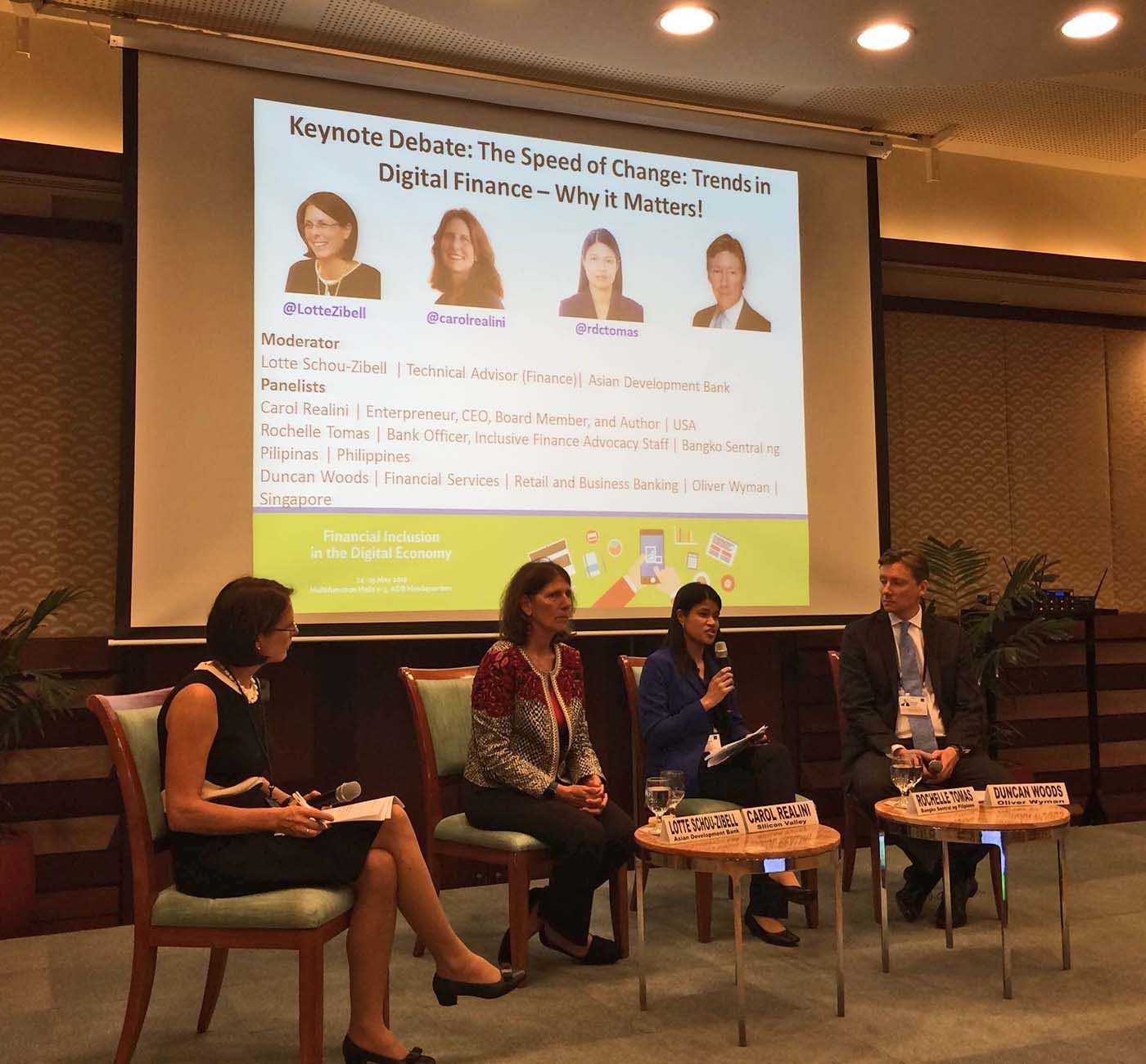SUMMARY
This is AI generated summarization, which may have errors. For context, always refer to the full article.

MANILA, Philippines – Digital innovation could be the key to getting every Filipino banked, but the country needs to set up the proper infrastructure before that could happen, according to experts brought together by the Asian Development Bank to discuss financial inclusion in the Philippines.
“One of the key barriers to financial inclusion in the country is the lack of a universal national ID and private industry has also identified it as one of the major costs in getting people on-board the financial system,” said Bangko Sentral ng Pilipinas (BSP) Inclusive Finance Advocacy officer Rochelle Tomas.
At the moment, there is no one national ID issued to every individual regardless of status, and this is a problem because of the BSP’s tough regime of requiring at least one Photo ID to open a bank account.
While government employees are all issued IDs and private sector employees can obtain SSS IDs and company IDs, those who are unemployed have no access to an ID and being unemployed is the major characteristic of financially excluded markets, Tomas explained.
“There is hope, however, as there is a draft bill passing through both houses that pushes for the creation of nation ID called the Filipino Identification System Act (FISA),” she said.
“The passage of the bill could be an important milestone for financial inclusion in the Philippines,” Tomas said.
Scaling up inclusion
The benefits of a national ID system have precedents, particularly in India, said Carol Realini, a celebrated author and Silicon Valley entrepreneur who has founded numerous startups focused on financial inclusion including Obopay and Chrodiant.
“Financial Inclusion hasn’t scaled in the Philippines like it has in India and Kenya and a lot of that had to do with infrastructure, especially a lack of national ID. Put these things in place and I think it will transform the inclusion in the country,” she said.
The Philippines has made major strides in financial inclusion and in particular micro-loans which have surged 333% since 2002. Despite this, only 31.3% of Filipino adults have a formal bank account while only 4 out 10 report that they save money, according to the BSP’s 2015 report on financial inclusion.
A secure cloud-based ID system can be scaled quite quickly with Realini pointing out that “the Indian government only began issuing the ID in 2007 and now they have 1 billion IDs.” She added: “It’s so exciting to build infrastructure like that practically overnight.”
It also can also be used for a variety of applications with banking just the tip of the iceberg.
“It creates a bigger vision for what’s possible once once everyone has a simple ID. You could use it to keep medical records, food subsidies and allow for digital transfers. Basically it allows for people to be full digital participants” she said.
Fintech game-changer
Getting people to become digital participants is crucial as the future of financial inclusion lies in financial technology, or fintech, Realini said.
Due to innovations and changes in the enabling environment, the number of financially excluded adults across Asia and the Pacific has dropped to about 1 billion. The emergence of new fintech players are accelerating the process much more rapidly than at any other time in history, she added.
Realini highlighted one such emerging player in the Philippines, the payment mobile app PayMaya of Smart Communications.
The service creates a virtual credit card that can be reloaded and used immediately for online shopping, peer-to-peer transfers, to pay for mobile phone load and to pay any merchant worldwide that accepts Visa.
It also highlights a crucial step for digital inclusion in the country; the new focus on interoperability, as the system can be used by anyone regardless of his or her mobile network operator.
It’s important to allow non-bank actors to have a role because they will be the key enablers of financial inclusion, Realini said, adding that they will even affect traditional banking as the world grows increasingly digital.
“What we’re going to see in the near future is that solutions focused on the bottom of the pyramid will create breakthroughs that are so effective that even mainstream banks are going to start adopting them,” she said. – Rappler.com
Add a comment
How does this make you feel?
There are no comments yet. Add your comment to start the conversation.